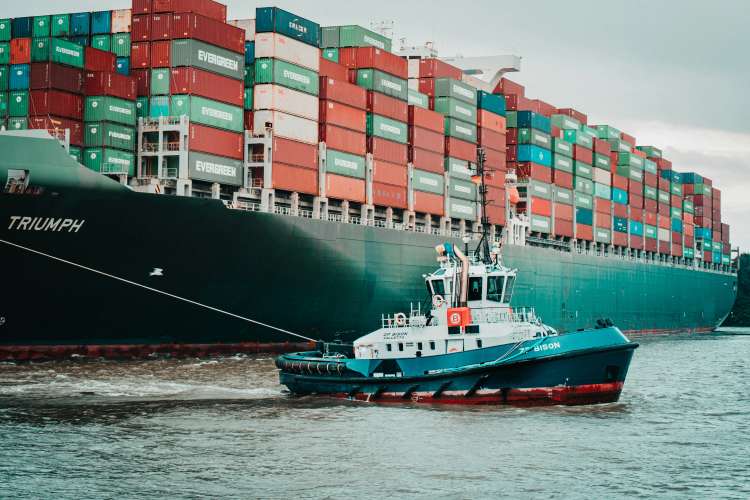
Economic impact of Red Sea attacks: The recent surge of Houthi attacks on commercial vessels in the Red Sea has sparked a significant re-evaluation of the strategic importance of this key maritime route, with profound economic implications that extend far beyond the region. These developments have thrown into sharp relief the interconnected nature of global trade and the fragility of the supply chains that underpin the world economy.
Traditionally, the Red Sea has been one of the world’s most important maritime routes, serving as a critical conduit for goods traveling between Asia, Europe, and other regions. This waterway, linking the Indian Ocean with the Mediterranean Sea through the Suez Canal, is instrumental in facilitating the smooth flow of a significant portion of global trade. The disruption of this critical maritime route due to Houthi attacks has the potential to ripple across the global economy, highlighting the strategic importance of this channel in international trade.
READ | Indian Pharma: US approvals drive 30% profit surge, but safety concerns linger
Economic impact of Red Sea attacks
The Houthi attacks have led to a massive rerouting of international trade. Shipping lines, traditionally reliant on the Red Sea for the shortest route between Asia and Europe, are now forced to take longer, more expensive routes around the Horn of Africa. This diversion not only increases transit times but also adds significant logistical challenges, disrupting the timely delivery of goods and affecting global trade dynamics.
The need for rerouting has led to a substantial increase in operational costs for shipping companies. This rise in expenses is primarily due to extended travel distances, leading to increased fuel consumption and additional wear and tear on vessels. The longer journey times also mean ships are tied up for extended periods, reducing the availability of vessels for other routes and creating bottlenecks in the shipping industry.
As the risk to vessels transiting the Red Sea escalates, insurance companies have raised premiums to cover the heightened risk. Additionally, there is an increased demand for onboard security, including armed guards, further elevating operational costs. These higher costs are likely to be passed on to consumers in the form of increased prices for goods transported via these routes.
The disruption in the Red Sea has had a tangible impact on global trade. The sharp decline in container traffic through this vital artery has directly affected trade flows, causing considerable economic repercussions for countries and industries dependent on these maritime routes. The drop in trade volume not only affects the economies of countries bordering the Red Sea but also has a domino effect on the global economy.
Countries bordering the Red Sea are feeling the economic impact of reduced maritime traffic. Ports and related maritime services in these countries are experiencing a downturn in business, leading to reduced income and potential job losses in port-related industries. This situation could have long-term economic implications for these regional economies, which are often heavily reliant on revenue generated from port activities and associated trade.
The Red Sea conflict has significantly impacted India’s petroleum product exports, a vital component of the nation’s export economy. The disruption has forced exporters to use longer maritime paths. The impact is particularly pronounced in diesel sales to Europe, a major market for Indian fuel exports, where exports have seen a dramatic decrease. The situation has been advantageous for competitors, especially US suppliers, who are increasingly filling the gap in the European market.
The significance of petroleum products in India’s export portfolio is substantial, contributing $57.3 billion or 12.7% of the total export value in FY23. The conflict has led to a sharp decline in overall petroleum product exports from India, dropping by about 23% in January compared with December, with the most considerable reduction observed in fuel sales to Europe. Diesel saw a 77% drop in sales to Europe.
Broader economic ramifications
The global supply chain, already under strain from various factors, faces additional pressure due to the rerouting of ships. These disruptions contribute to delays in the delivery of goods, exacerbating existing supply shortages. This, in turn, can lead to inflation and availability issues in various markets, affecting everything from retail sectors to industrial manufacturing.
The transport of oil and LNG through the Red Sea is of particular concern. Any significant disruption in this region could impact global energy markets, potentially leading to increased prices for oil and gas. This is especially troubling given the pivotal role of energy in the global economy and the potential for such price increases to fuel broader inflationary trends.
The increased costs associated with longer shipping routes, higher insurance premiums, and additional security measures contribute to rising inflation. These costs are likely to be passed along the supply chain, ultimately impacting consumers through higher prices for goods. In an already inflationary global economic environment, this additional pressure could exacerbate economic challenges for both businesses and consumers.
Mitigation efforts and long-term solutions
In response to these attacks, international efforts, led by the United States and its allies, have focused on safeguarding commercial vessels through naval operations and targeted airstrikes against Houthi positions. However, these measures have been only partially successful in halting the attacks, and there is growing concern about the potential escalation into a wider regional conflict. The complex nature of the situation necessitates a multifaceted approach, combining military, diplomatic, and economic strategies to ensure the security of this vital maritime route.
The situation in the Red Sea is a stark reminder of the vulnerabilities inherent in our interconnected global trade system. The economic implications of the Houthi attacks extend far beyond the immediate region, affecting global supply chains, energy markets, and the broader world economy. As the international community grapples with these challenges, the need for resilient, diversified supply chains and robust international cooperation to ensure maritime security has never been more evident. The ongoing crisis in the Red Sea highlights the delicate balance that underpins global trade and the importance of maintaining stability in key international trade routes.

